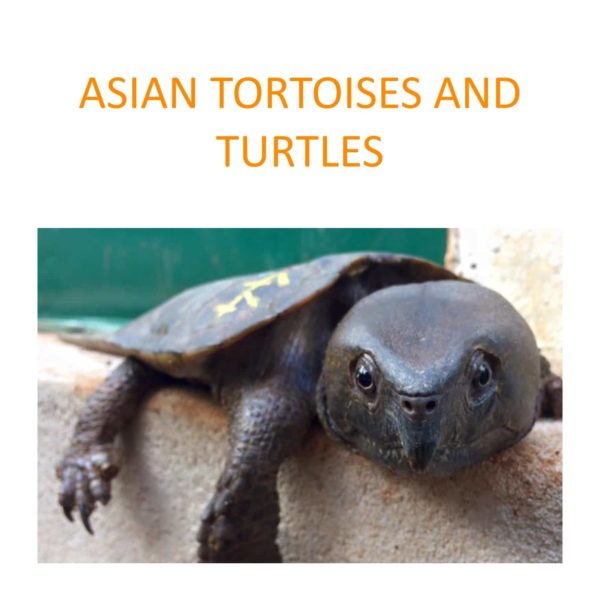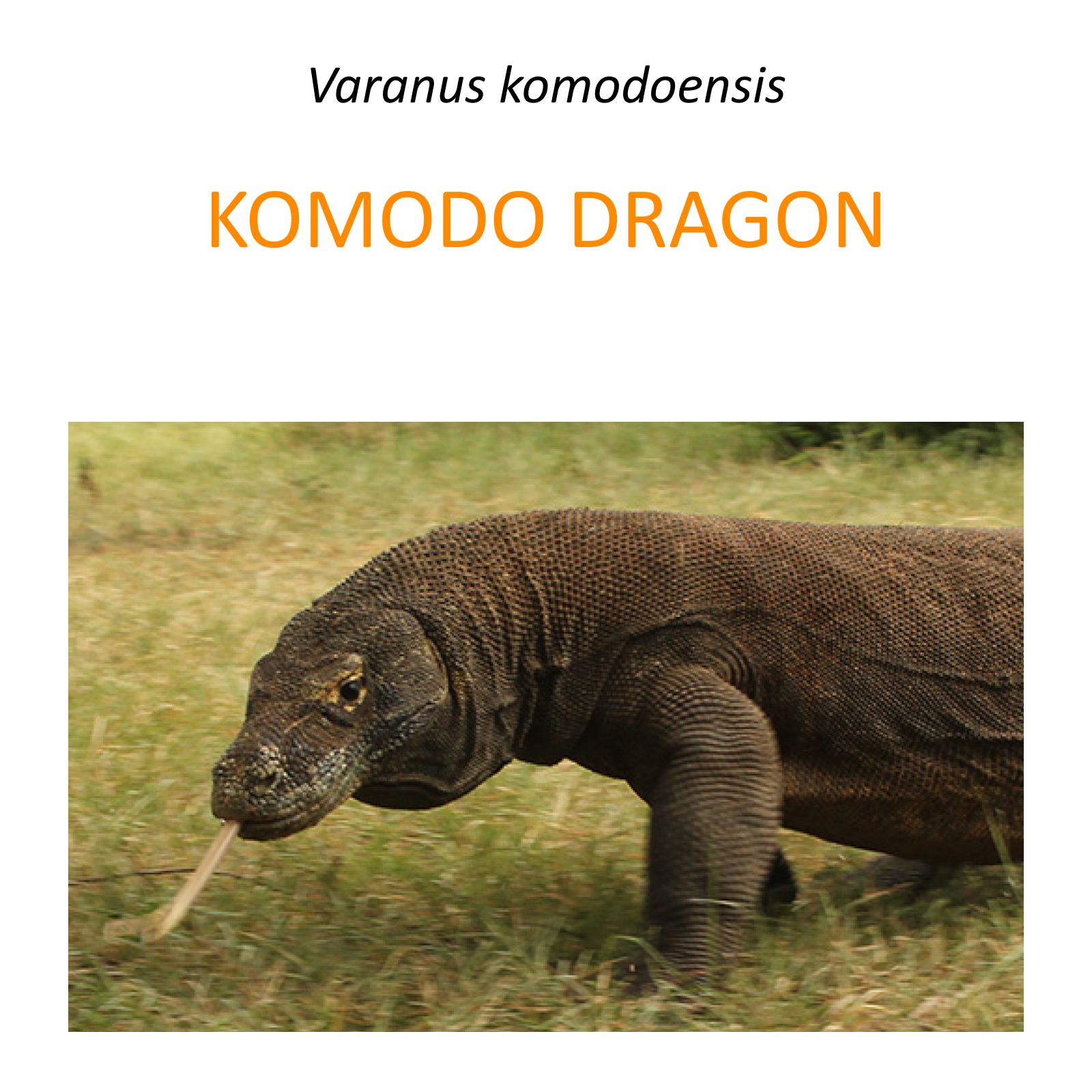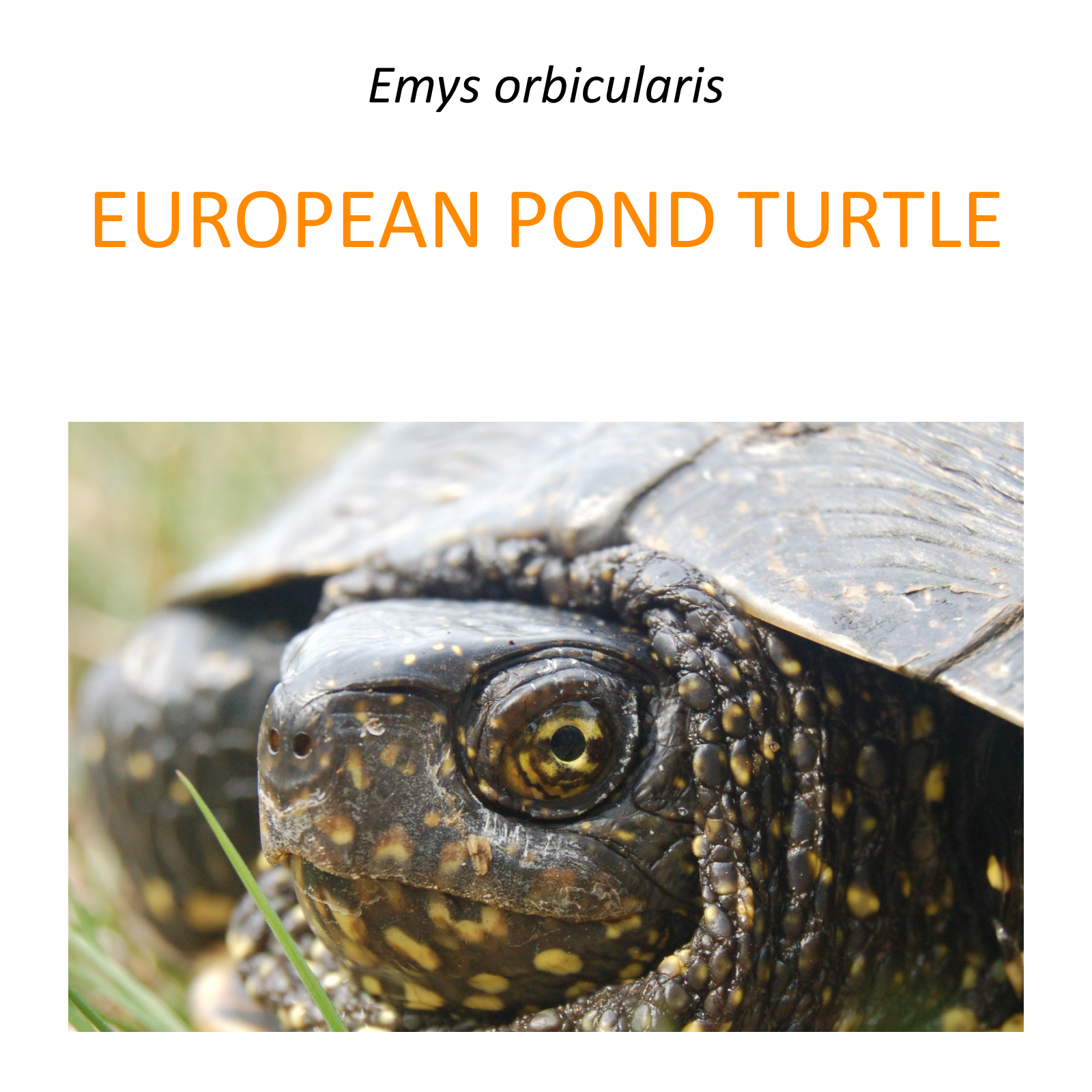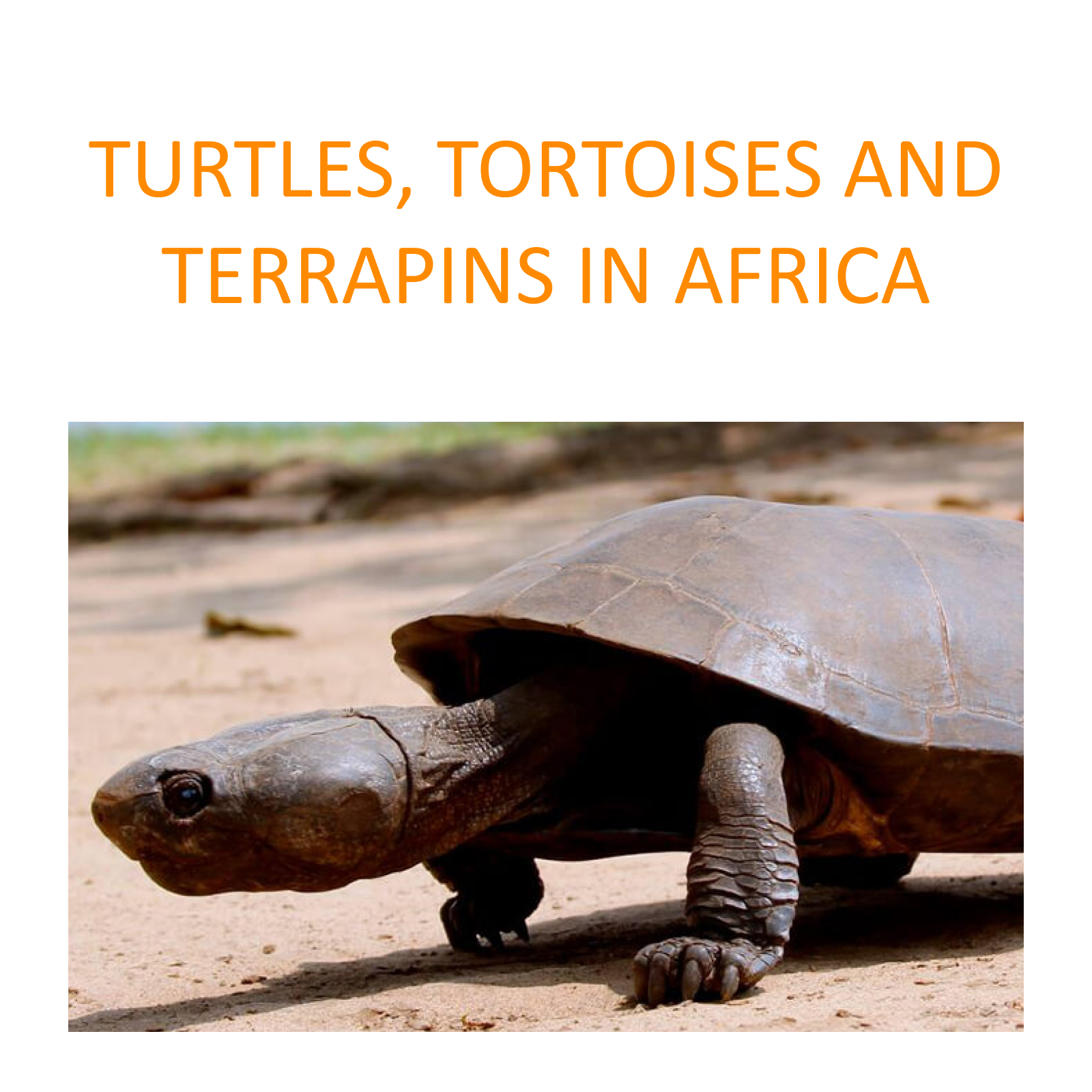Conservation of Asian Testudines
Description
Species name: PHILIPPINE FOREST TURTLE, BIG-HEADED TURTLE
Scientific name: Siebenrockiella leytensis, Platysternon megacephalum
Country: The Philippines – Palawan
Project website: www.katalafoundation.org
Turtles have lived on earth for over 250 million years! Unfortunately, humans have proven to be their most dangerous predators. For thousands of years, turtles have been valuable food for humans. Probably as early as 11 thousand years ago, indigenous people exterminated giant tortoises in Florida… Sea turtles, tortoises and mud turtles were also a delicacy in Europe until recently. Today, the problem is mainly in South America, Africa and Southeast Asia. It does not mean that turtles are safe on other continents. The illegal turtle trade market is so large that poachers hunt these animals on a massive scale.
Philippine forest turtle (Siebenrockiella leytensis)
The Philippine forest turtle belongs to the family Geoemydidae, and is one of the most enigmatic freshwater turtle species in Southeast Asia. For over 80 years, its true geographic distribution in the Philippines remained a mystery, only recently discovered to be found only on the island of Palawan. It inhabits the hard-to-reach streams and floodplains of the lowland forests of the island. It weighs about 3.5 kg and its brown, red-brown or black carapace reaches 30 cm. So it is not an attractively coloured turtle, and initially, poachers sold it for meat, but its rarity has drawn the attention of illegal turtle collectors who are willing to pay big money for one of the rarest turtles in the world. Poaching has made it a critically endangered species (according to the IUCN).
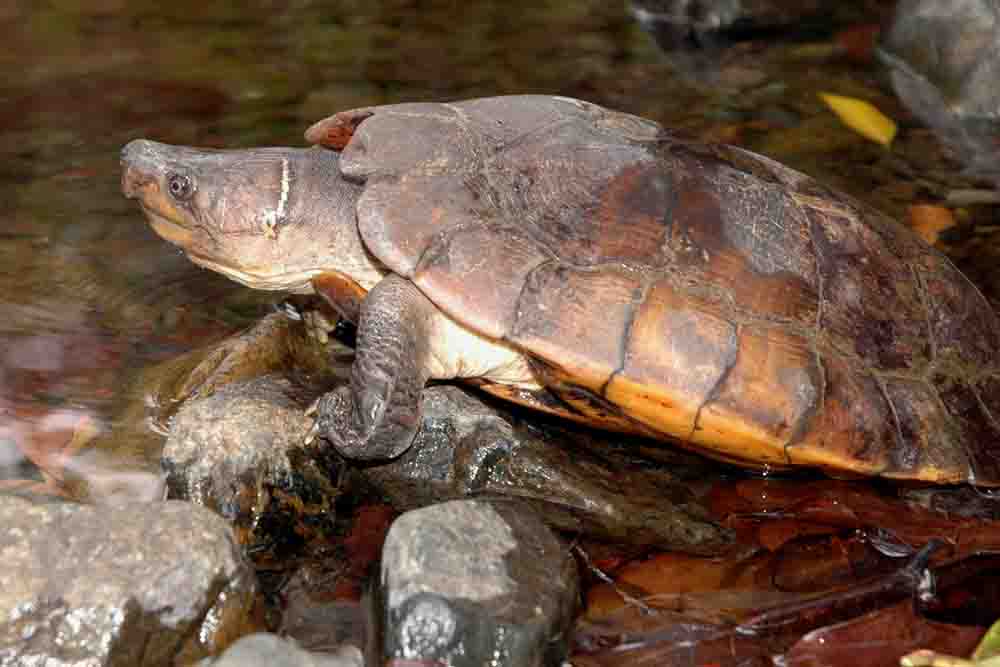
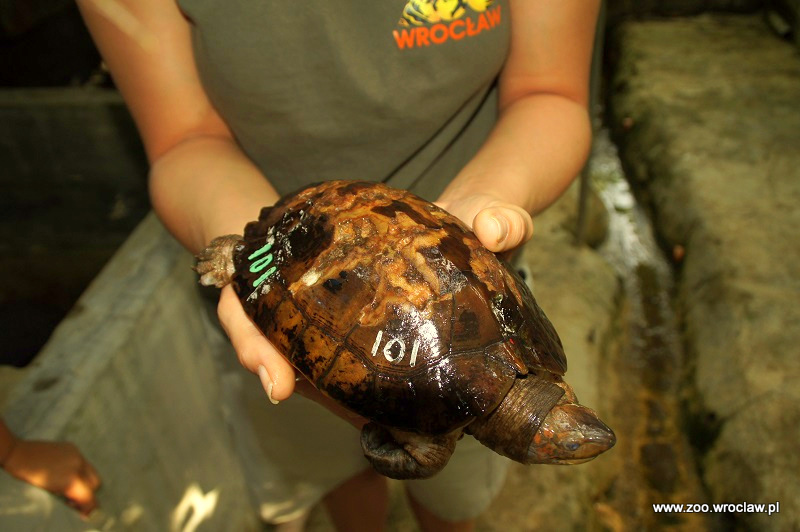
In June 2015, we set out to help four thousand turtles confiscated in the Philippines in southern Palawan. The majority, 3748, belonged to the endangered species of Philippine forest turtles (Siebenrockiella leytensis). It is almost half of the estimated population size! The turtles were collected by the smugglers over several months, so their condition was very poor, they were dehydrated, malnourished and injured. Building pools and caring for so many animals was beyond the financial means of the Filipinos. The turtles were taken to the KATALA Foundation where they were cared for by veterinarians and biologists from all over the world. Wrocław Zoo sent their experienced reptile keeper to Palawan! Most of the turtles were saved and released into the wild. Their condition in the wild is constantly monitored. The release sites of the turtles are strictly confidential due to their safety. The breeding of Philippine forest tortoises at Katala Station has also been a great success. Conservation breeding can become a lifesaver for these critically endangered tortoises.





